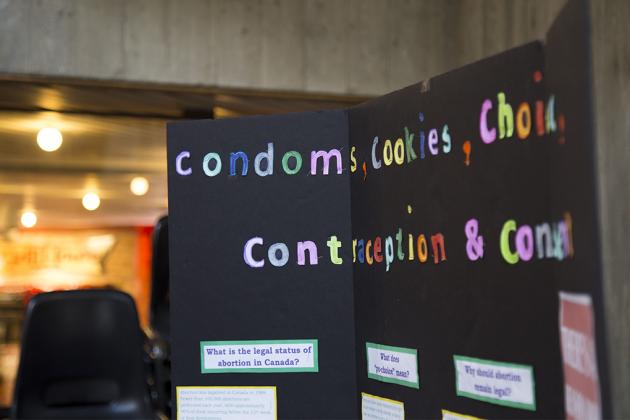
Source: Caelan Beard | The Ontarion
Campaign encourages more positive sexual attitudes
Sexual and Reproductive Health Awareness Week takes place this week from February 12 to 18, coinciding with Valentine’s Day.
The week is hosted by Action Canada for Sexual Health and Rights, a progressive and pro-choice charitable organization founded in 2014. The organization aims to advance and uphold sexual and reproductive health and rights in Canada and internationally.
One of their campaigns includes the annual Sexual and Reproductive Health Awareness Week. This year’s theme is “Ready for some pillow talk?” and asks health care providers to start the conversation to improve care for sexual and reproductive health and rights.
Some of the week’s highlights include a Valentine’s Day webinar, events in cities across Canada, and the launching of a reference handbook to help healthcare providers provide the best care to diverse communities.
The handbook includes general tips, as well as sections on offering care to a wide variety of groups including indigenous communities, migrants, newcomers, refugees, and survivors of sexual violence.
The campaign also aims to ensure that Canadians are aware of their sexual and reproductive rights, pressing for quality, accessible care, and communication between healthcare providers and clients.
Action Canada believes that when people are “ready for some pillow talk,” they should be able to have open, non-judgmental, and stigma-free conversations with their healthcare provider about any issues and questions pertaining to their sexual and reproductive health.
Similar events have also sprouted up in universities across the United States, with names ranging from “Sexual Responsibility Week” to “Shag Week.” Like the Canadian campaign, these events seek to normalize and educate people about issues of sexual and reproductive health and to make these topics less taboo. As well, some advocates believe that opening up conversations about sexuality could help further a culture of consent.
The campaign also addresses safe sex, a topic of particular relevance for university students.
A 2013 study conducted by The Sex Information and Education Council of Canada found that while a quarter of university students abstain from sex, only about half of those who aren’t abstaining are using a condom.
In that vein, according to the Public Health Agency of Canada, sexually transmitted infection rates have been on the rise in the last 10 years, with the majority of reported cases being among those aged 15 to 29 years. The good news, according to the researchers, is that attitudes toward sexual health were positive; it was primarily students’ sexual behaviour that could use some improvement.
The aim is that this year’s Sexual and Reproductive Health Awareness Week will further conversations and continue to encourage positive sexual attitudes.
Photo by Mariah Bridgeman/The Ontarion.